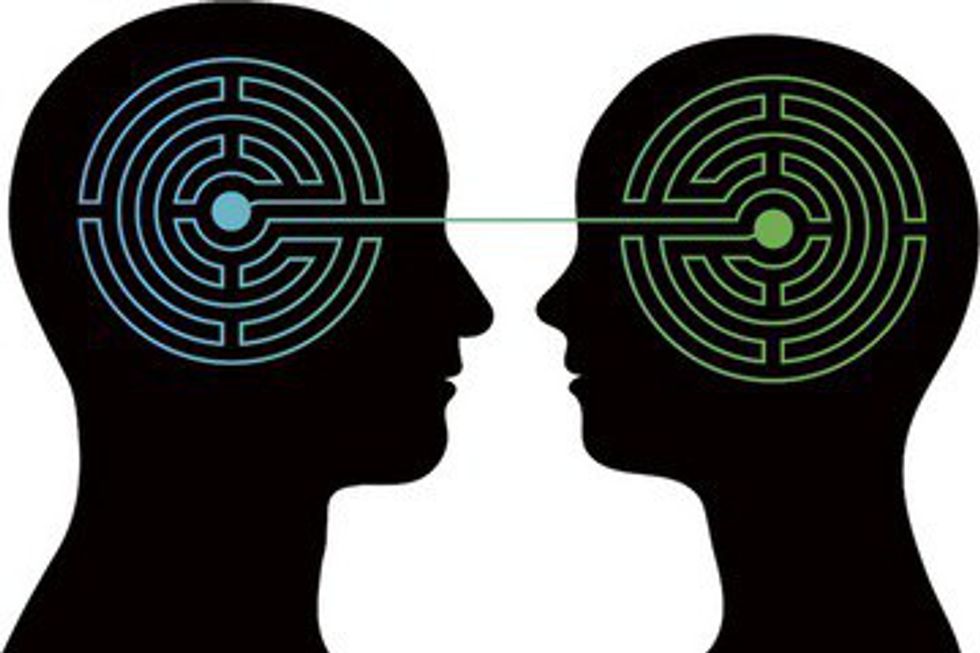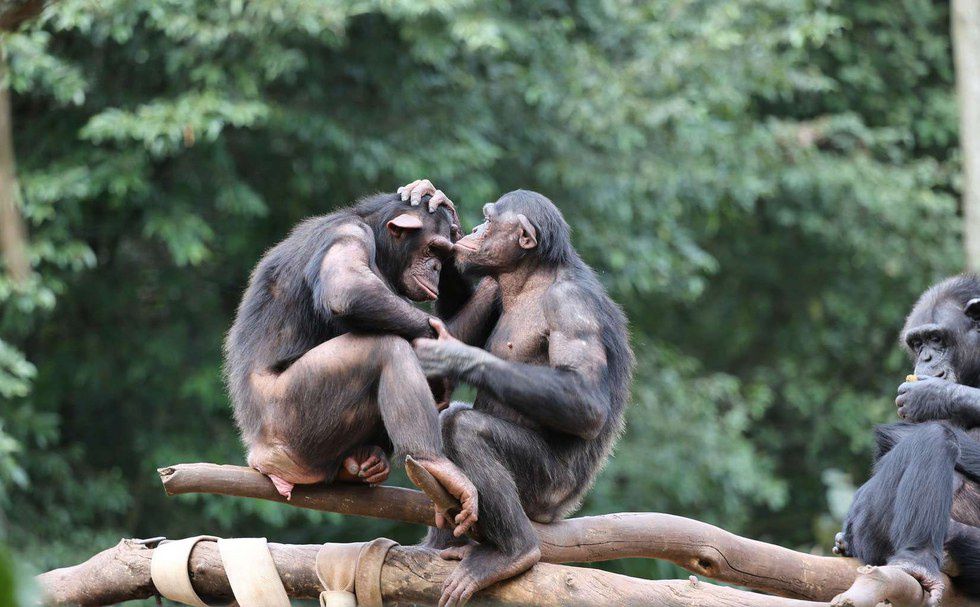Empathy is evergreen: forever relevant in our relationships with each other and relevant in big-picture issues like foreign relations. There's always a desire or need to understand those around us and ourselves.
But how does empathy actually work? How does it affect me personally? How can I tell if I'm an empath or not? I asked myself a lot of these questions and decided to do some research; today I'm going to organize it neatly just for you.
What is empathy?
Empathy is the "experience of understanding another person's condition from their perspective." It's basically what people mean when they say, "place yourself in my shoes." They want empathy from you. This is much different from sympathy, where you don't actually feel the feelings of another, but mostly just feel bad for them. Empathy is a less separate emotion. It's also been described in a sort of spiritual vibe as "the dissolving barrier between self and others."
How does it work?
About ten years ago scientists discovered the neurological reasoning behind why we experience empathy with others. Positioning two monkeys to be facing one another, they gave one monkey a banana to eat and did not give anything to the second monkey. Both brains were monitored. As the first ate, certain receptors in the brain reacted. As the second watched, the same exact receptors reacted, as if he were also eating the banana. Identical results occurred for other activities like throwing a ball.
This is remarkable, since you might guess at first that the second monkey would become jealous, or hungry, or start devising a plan to get another banana. Instead, the second monkey's brain seemed to mirror the first's.
The reacting neurons were thus termed "mirror neurons." They're the reason we cry during the sappy part in the movie or squirm when we watch our friend wipe out and break a bone. Our brain reacts to our surroundings and mimics it.
Is this a good thing?
So how can empathy be a good thing? It seems romantic to be connected to others in such a way, but don't you want your feelings to be independent from others? Well, being independent or unique isn't always helpful. Becoming in tune with others' emotions helps you develop "pro-social behavior" and makes it easier to develop healthy relationships.
And since we all know networking is key, this is sure to help in the career area of your life. More concretely, studies have shown that people with empathy are more likely to (intentionally, not by chance) succeed in life, specifically teens. Psychology Today says that teens who struggle with being empathetic "tend to be more self-absorbed and less caring to others, and ironically themselves." Empathy changes how you react to failure. Those without it can be afraid of failure or seek to avoid it. Those with higher levels of empathy are unashamed of failure and see it as a learning experience. This ultimately lets them take more chances and do things for the sake of doing them, not for ego or fear.
So essentially, yes! Being an empath is good for your mental health and the social aspects of your life, which can lead to greater successes.
How do I know if I'm an empath?
Emotions are difficult to measure. There are theories on different types of empathy, how it is learned and what other conditions make empathy possible. It's important to note that experiencing first-hand the feelings of others doesn't just apply to your friends; it also means toward the homeless, your significant other's ex, the incarcerated, the addicted, those you disagree with and general strangers. Being an empath can be a burden, but it's helpful to be able to understand others. Here are a few bits of information I found that can help you decide for yourself if you may be an empath:
If you're on the Autism spectrum, your ability to empathize may be inhibited by your inability to recognize others' emotions.
If you have been diagnosed with depression, your ability to empathize is inhibited by your brain's inability to recognize or feel emotions in general. When your own emotions are dulled, the emotions caused by empathy are also dulled.
There are three types of empathy -- perspective taking, personal distress, and empathic concern -- according to Psychology Today's Ronald E. Riggio Ph.D. You could be one exclusively, one at a time, or a mix of them simultaneously.
Your capacity to empathize is also situational, so if you feel unsure about what type of level you're on, that's okay. A 2013 study showed that if you have to make a quick decision, your ability to empathize is hindered in that moment. It's a survival instinct. It also showed that your own emotional state can distort how you read others' emotions and disrupt your ability to share them. For example, if you're angry at your partner, their responses may be read as defensive to you when really they were feeling something else. When you're in a comfortable and stable situation, you may be less able to understand someone's distress as well.
Most people are empaths to an extent. Humans are hard-wired to be this way so that we can cooperate and communicate effectively, and thus survive. If you have a severe lack of emotional fluidity with others it's actually considered a personality disorder: psychopathy.
How does this apply to world issues?
Although I didn't find much research on this, my guess is that because we cannot directly see people living in far away countries, our brain cannot mimic their emotions, leaving us with a plethora of misunderstandings. Texting is always somehow more vague than a phone conversation, and a call is more vague than a face-to-face conversation. Keyboard warriors are always meaner over the internet, right? We need to take away that security wall of technology. Our discussions with other countries, their leaders and their people need to be in person so that we can better understand each other.
With this same train of thought, being distant may have also led to dehumanization and stereotyping of the people we can't see or don't know enough about. This seems to be against human nature in some ways (but not all) and obviously is not productive or beneficial for anyone.
You can train your brain.
Empathy is a learned skill. Most of us learn naturally when we are very young and growing just like we learn to walk and talk. If something went astray in your childhood, you may have become more or less capable of empathy. Either way, it's alright! There are plenty of texts which teach you how to harness empathy or to understand it better. Here are a few I've found, although I must warn you, I haven't read any yet. My research is ongoing all the time with everything.
"The Empathy Factor: Your Competitive Advantage for Personal, Team, and Business Success" by Marie R. Miyashiro
"Empathy and It's Limits" by Aleida Assmann and Ines Detmers
"Empathy in Patient Care: Antecedents, Development, Measurement, and Outcomes" by Mohammadreza Hojat
"Why Empathy Matters: The Science and Psychology of Better Judgement" by J.D. Trout
"The Power of Empathy: A Practical Guide to Creating Intimacy, Self-Understanding and Lasting Love in Your Life" by Arthur Ciaramicoli














































